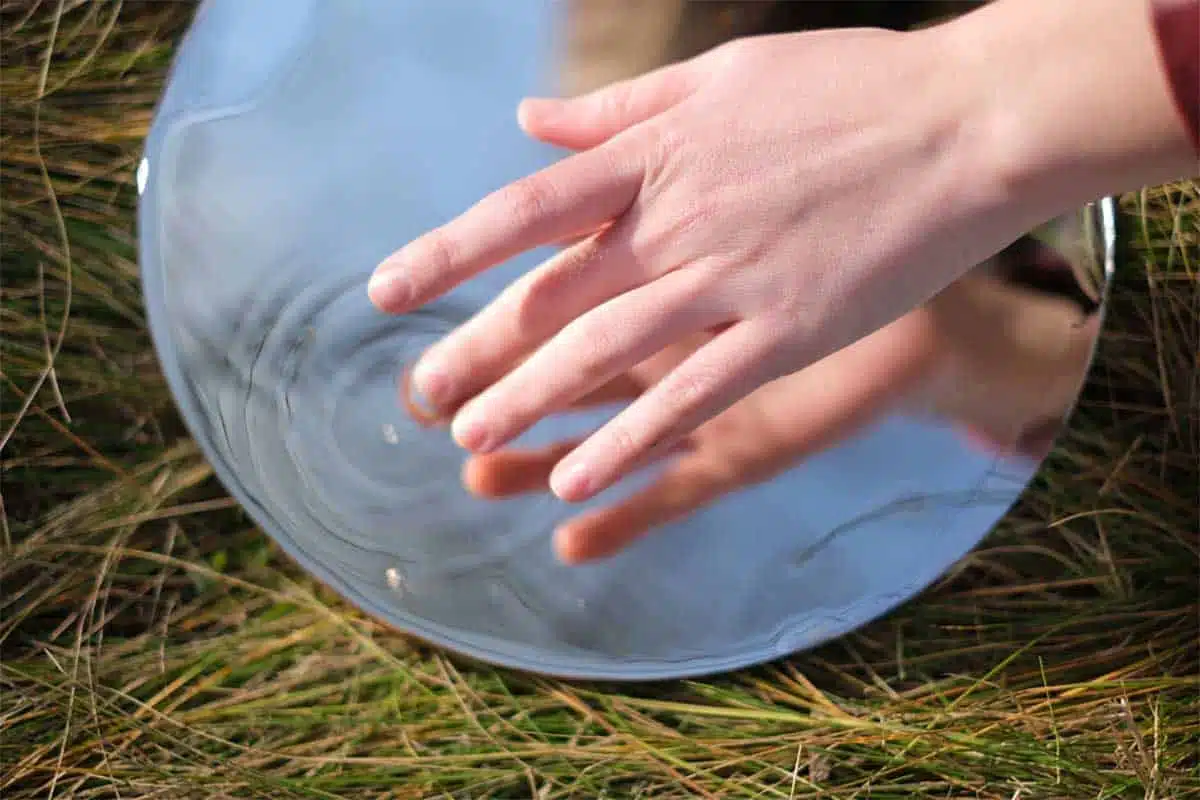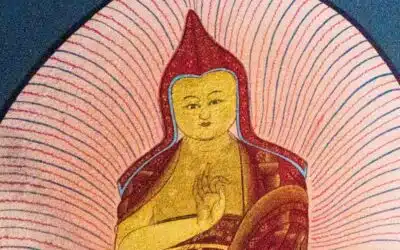Showing the Great Perfection

Written By Mila Khyentse
Blog | General Introduction to Dzogchen | The Dzogchen Journey
In “Showing the Great Perfection”, Mila Khyente talks about the Mind Introduction, the foundational experience of the Dzogchen path.
Series: The spiritual path in Dzogchen
Deepening the Dzogchen path
Showing the Great Perfection
To walk the (non-)path of Great Perfection, it is necessary to see the result first. This may seem counterintuitive, but that’s what the Dzogchen path is all about: following the result as the path, always remembering that the result is at the Base, i.e. already present. It’s not easy when you put it that way. In fact, in the case of the Great Perfection, if the result isn’t visible or hasn’t been seen at least once, it’s simply impossible to achieve it. This is what showing the Great Perfection is all about: establishing the result, the Great Perfection of all reality, at the Base, that is, in the practitioner’s vision. Thus, “equipped” with this vision, the practitioner immediately knows whether it is the vision of the Great Perfection or its absence in every experience of the mind.
“No Great Perfection without a master, no path without a disciple…”
Showing the Great Perfection requires a number of joint factors. First, the fundamental motivation, the mind of enlightenment : to walk the path of Great Perfection for the benefit of all beings. Next, devotion: the infallible bond to the master, the support of Great Perfection. Then, a very good understanding of the illusory reality of the appearance of phenomena and the ultimate reality of their empty essence; the correct view of the Great Perfection of the nature of reality. Finally, an open mind, adventurous, joyful and full of respect for the mystery of life and death. The last point is a bonus, but nonetheless very important today. Armed with all this, the practitioner can now walk the path of Great Perfection. It begins with “showing the Great Perfection”.
Who shows? It’s usually the master in whatever form: woman or man or circumstances or dreams, etc., without any particular distinctions, because when conditions are ripe, everything is a reflection of the Great Perfection. As the nature of Great Perfection is not directly accessible most of the time, we need a doorway, an identifiable reflection, to the true aspect of our own mind and its primordial nature. This is the role of the master. What’s more, Great Perfection can of course only be shown if it has been fully realized, and if it is continually experienced by the master.
What is shown? Our true nature. We experience directly, in an instant, that our mind is in fact totally clear, limpid, without conceptual or emotional limits, and that it is at the same time incredible, primordial luminosity, and that these two aspects (which are not actually two), clarity-luminosity, are present in all phenomena without exception, whether internal or external. In the Tibetan tradition, this has a name: it is the introduction to the primordial nature of our own mind. This is the first aphorism of Prahevajra, the “founder” of Dzogchen: “Meet your essential nature in the moment.” This is the introduction to our own nature. Why show it? Because it is the beginning of the true path to the realization of the Great Perfection. Before that, it is the preparation for the introduction. Once this has taken place, it is the foundation of the path to be followed, because the result is no longer out of sight. Unlike most spiritual traditions, where we train, practice, etc. to achieve a result that is generally unknown, the result of the Great Perfection is known at the base, at the beginning of the path, and therefore we know without error what is to be achieved continuously, throughout our existence, day and night. Thus, in the tradition of Great Perfection, of Dzogchen, the spiritual path of transformation can only begin on the express condition of being able to directly perceive the great perfection of our mind. It is the foundational experience of the introduction that is the main vector of our realization, and for this it must be shown. No Great Perfection without a master, no path without a disciple…
More Posts
Being Your Own Master
Relationship with a master requires discernment. “Being your own master” offers insights into understanding devotion and avoiding pitfalls.
Phenomena
"Phenomena" is the second entry in a new category designed to improve understanding of essential Dzogchen words and concepts.
The Story of the First Masters: Manjushrimitra
We continue the Stories of the First Dzogchen Masters with Manjushrimitra, who structured the verses of Dzogchen into three series.




